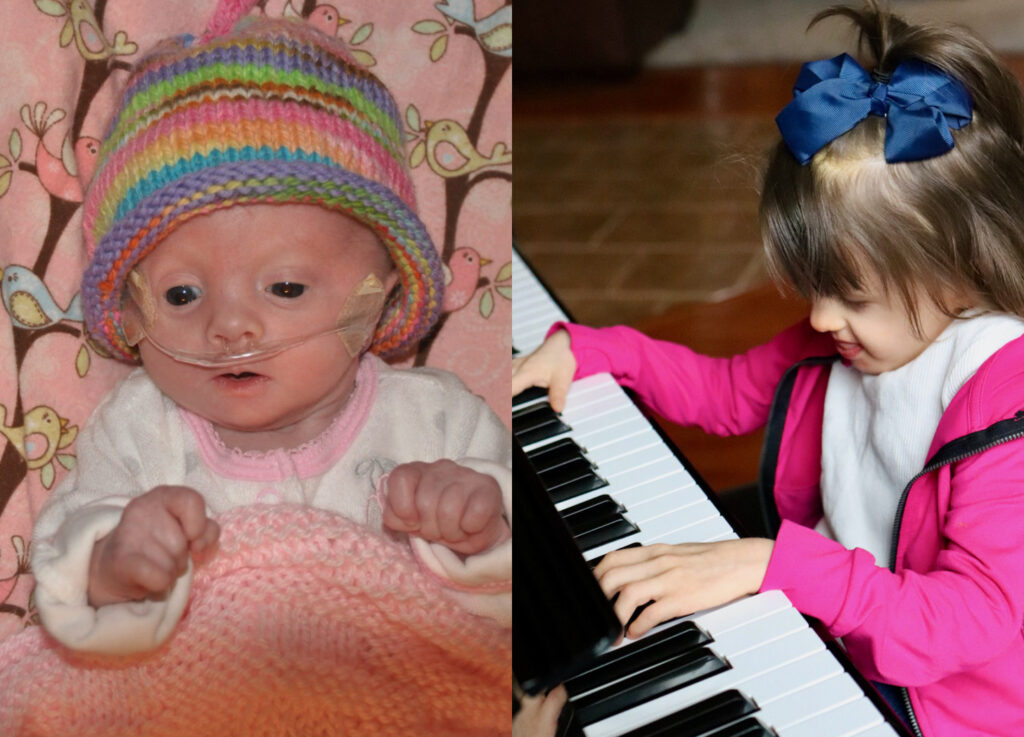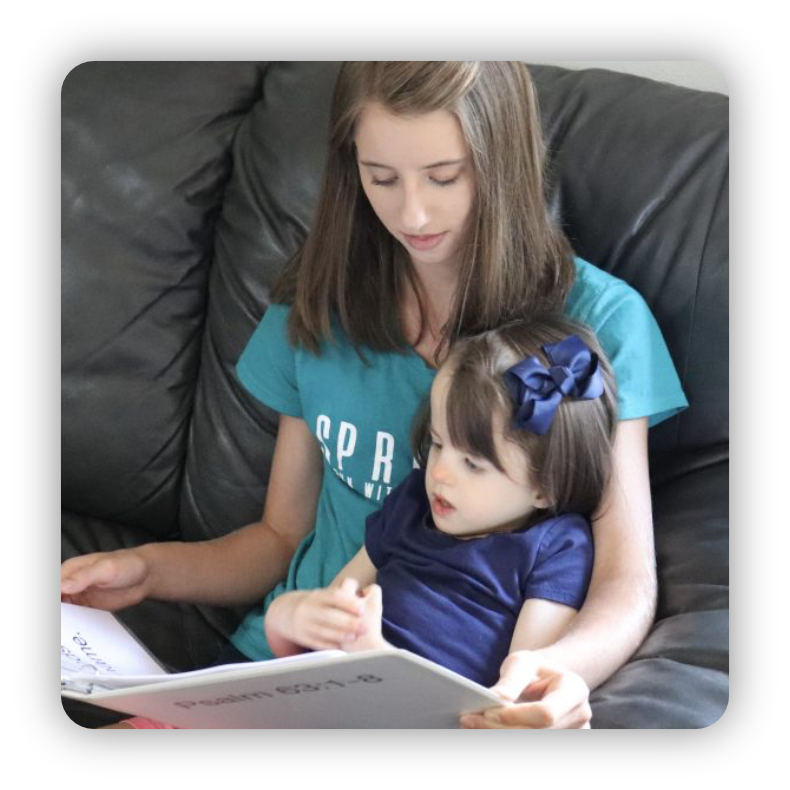- About
-
-
The SBA Pro-Life America Family
-
Issues
-
Events
-
-
- Employment
- About
-
-
The SBA Pro-Life America Family
-
Issues
-
Events
-
-
- Employment

Melody’s name is quite fitting. She has always responded remarkably to music, even while in the womb. Her siblings felt her little kicks for the first time early in the pregnancy when her sister played the violin. Even today, music continues to be a significant part of Melody’s life, bringing her joy every day.
When Melody was born at 40 weeks’ gestation, she weighed a mere 4 pounds, 14 ounces. Her parents instantly knew that something was wrong. Their sweet, tiny baby didn’t open her eyes, cry or move. Tests were run and results came back that Melody had trisomy 18 – a genetic condition in which there are three copies of chromosome 18 rather than the usual two.
Within her first few days of life, it seemed as though all odds were stacked against her. According to the doctors and other medical staff, a trisomy 18 diagnosis meant that Melody was “incompatible with life.” Little Melody was born with holes in her heart. Additionally, she had severe apnea. These are the two most common health issues for children with trisomy 18.

Yet, the doctors were certain that precious Melody would die. No hope was offered, and she was sent home on hospice.
Over time, though, Melody became stronger and defied all expectations. The holes in her heart healed on their own. Melody had an exceptional speech therapist who gave her an exercise for her apnea. Within one week of using her system, Melody’s apnea greatly improved, and within a few weeks, it was entirely gone. Remarkably, she is still apnea-free.
Melody is now 11 years old and is much stronger and healthier than projected. She is an exceptionally happy little girl who smiles, laughs, loves to read books, loves to play with her siblings, and drives her hot pink toy Mercedes. She is thriving with a strong and healthy heart and does not take any medication. Her siblings adore her, and she loves her family with every ounce of her being. Melody is indeed compatible with life!
Melody’s trisomy 18 does not define her, and she stands as a strong testament that all people with disabilities are worthy of love and life. She has a purpose, and this world is a better place because she is in it.
Every human being should be afforded the basic right to be protected from violence and bodily harm. We should not discriminate against human beings who have disabilities. Melody’s potential was severely underrated, but even when these children do not achieve the same outcomes as Melody, they are still deserving of our care and protection for as long as they live. Human beings are inherently valuable because of their humanity, not what they can or cannot do.
Children with an extra chromosome are no less human than any other child. Far too often, children with trisomy 18 are killed by abortion because they are not seen as equally valuable human beings, and it is seen as futile to try to save them or give them the same medical care that children without their disability would automatically receive. Children with trisomy 18 can be dehumanized with the phrase “incompatible with life.” Their vulnerabilities may differ from those of other children, but this should move us to protect all these little ones, not harm them.
As a mother of a child with trisomy 18, Jennifer’s message is simple:
“Even if babies with trisomy 18 are only here for a brief time, we can choose to honor them with unconditional love, acceptance, and compassion regardless of their vulnerabilities. We can have the opportunity to hold them, cuddle them, and kiss them while they are here, just like we would any other baby.”
“Whether they are here for 11 minutes, 11 months, or 11 years like Melody, we can choose to cherish them, value them, support them, and love them for as long as we can.”
Yes, I want to receive up-to-the-minute email updates on the latest pro-life news and opportunities for me to take action to serve women and save babies.